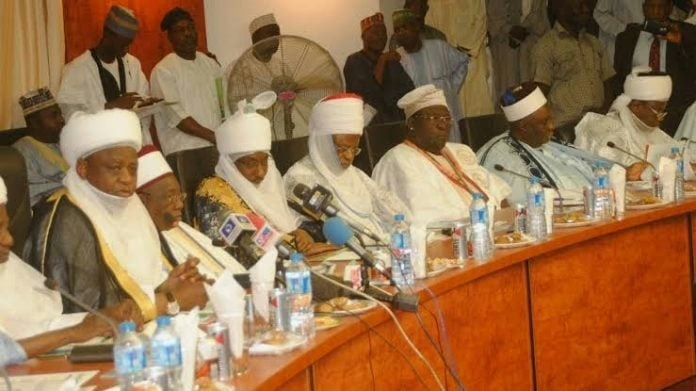The Northern Elders Forum (NEF) has unveiled plans for the inaugural Northern Nigeria Investment and Industrialisation Summit, scheduled to take place from September 29 to 30, 2025.
This landmark event aims to reposition Northern Nigeria as a dynamic center for economic growth, innovation, and sustainable progress.
During an international press briefing at the Hawthorn Suites Hotel in Abuja, NEF spokesperson Professor Abubakar Jidere characterized the summit as a “purpose-driven patriotic initiative” focused on rejuvenating the region’s economy and unlocking its abundant, yet underutilized, resources.
“This is far more than a typical conference,” Jidere emphasized. “It represents a decisive economic call to action-a platform to introduce a renewed vision for Northern Nigeria. Our goal is to convert challenges into opportunities for prosperity.”
Addressing inquiries about the timing and NEF’s involvement, Jidere highlighted that the present moment offers a unique chance for Northern Nigeria to redefine its economic future.
“This summit transcends politics,” he explained. “It centers on economic growth, strategic partnerships, and shared wealth creation. The Northern Elders Forum has chosen this pivotal time to help craft a future that honors our people’s potential.”
Reflecting on the region’s historical economic significance-from the era of groundnut pyramids to thriving commerce in cotton, hides, and mineral resources-Jidere acknowledged that despite Northern Nigeria’s past role as an economic powerhouse, challenges such as insecurity and insufficient investment have hindered its progress.
“Today marks the beginning of a new era. We are not merely reminiscing about past glories; we are moving forward with clear intent,” he stated.
Developed over an 18-month period in partnership with the 19 Northern States and the New Nigeria Development Company (NNDC), the summit will concentrate on five strategic pillars: Agriculture and Land – maximizing extensive arable land to nourish the continent; Solid Minerals – exploiting over 500 identified resource-rich sites; Human Capital – capitalizing on a youthful and growing population; Infrastructure – enhancing connectivity through roads, railways, energy, and dams; and Industrial Growth – expanding enterprises to become regional and international leaders.
These core areas will be reinforced by three essential enablers: education, healthcare, and technology, which are critical for fostering sustainable and inclusive development.
Contrary to the common misconception of being landlocked, NEF stressed that Northern Nigeria is “land-linked,” sharing borders with Niger, Chad, Cameroon, Benin, Mali, and the Central African Republic. With a population of 160 million, the region is strategically positioned to serve as a vital economic gateway for West and Central Africa.
“Our population is not a liability-it is a tremendous asset,” Jidere affirmed.
While the summit is anchored in Northern Nigeria, its implications resonate nationally and across the African continent.
“This summit is a platform for Nigeria, for Africa, and for global partners committed to inclusive prosperity,” Jidere concluded. “As Northern Nigeria advances, so does Nigeria. And as Nigeria prospers, Africa thrives.”

















